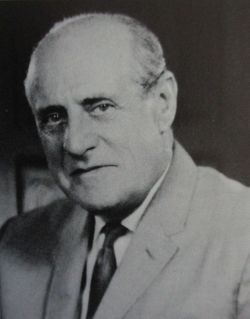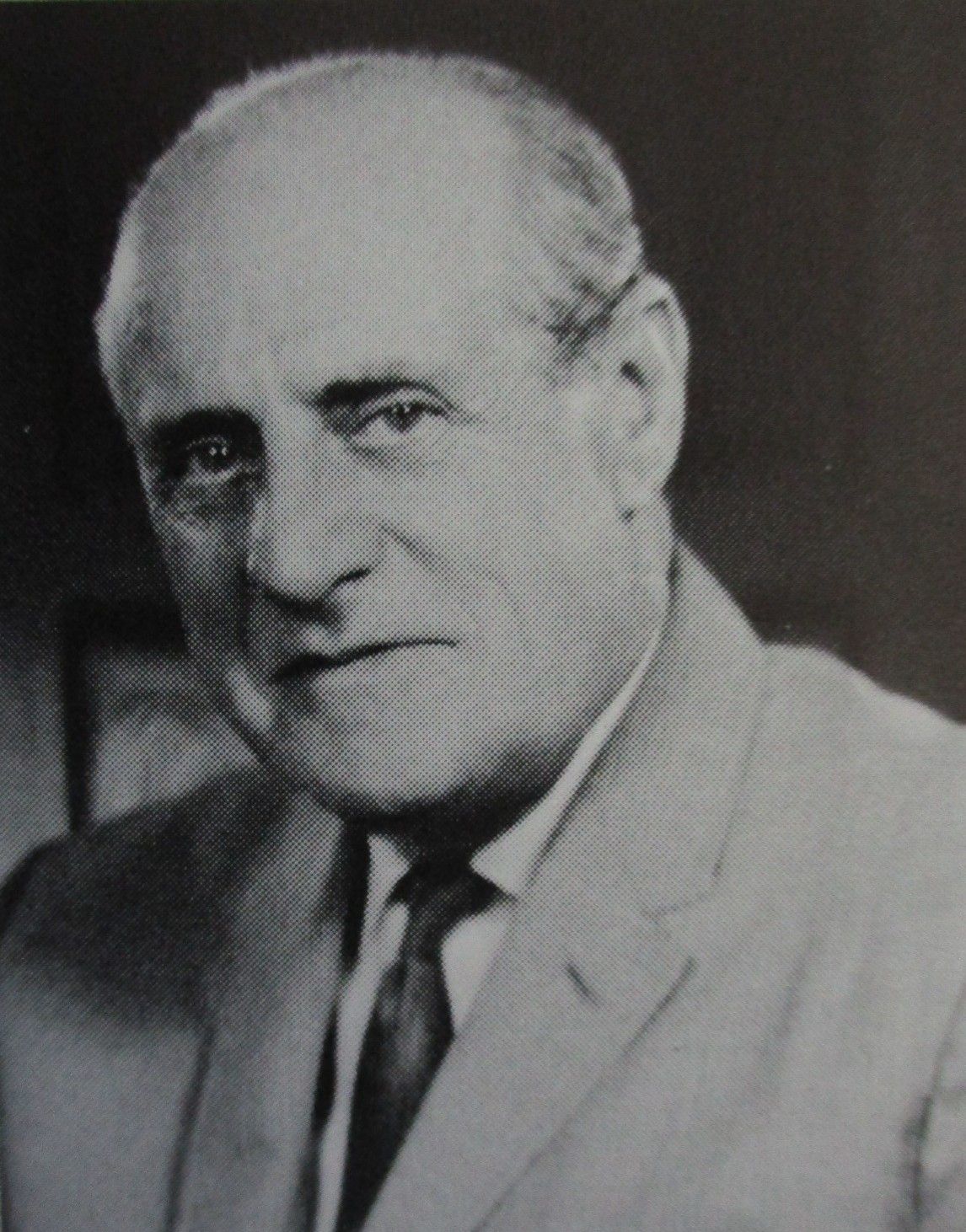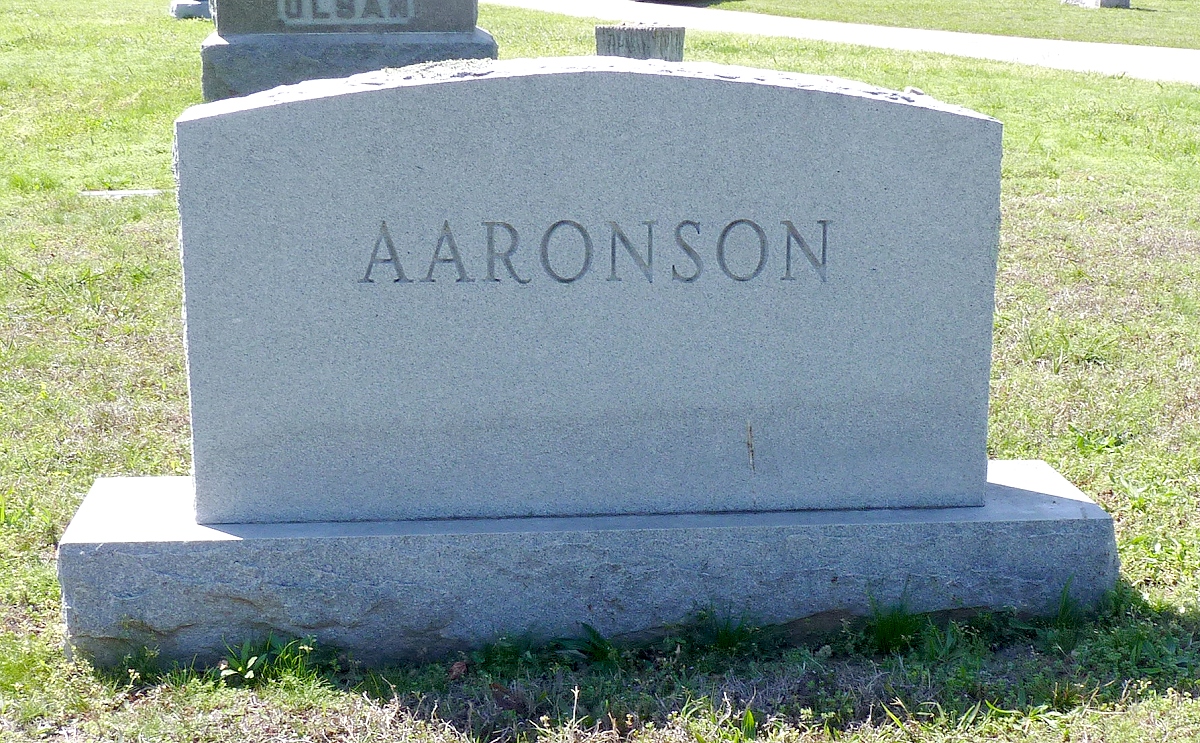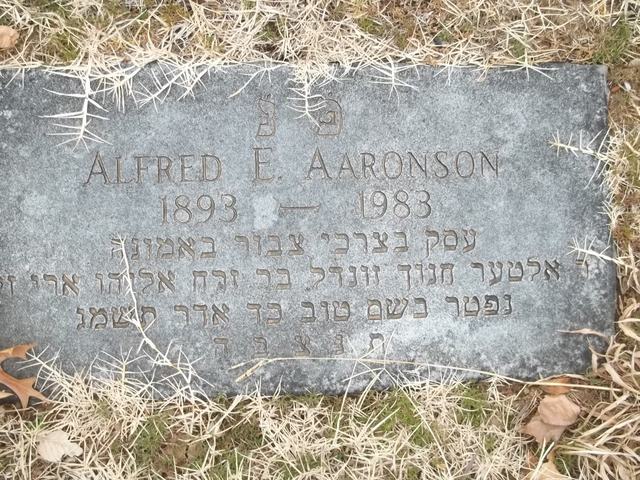In 1954 Aaronson spearheaded the movement to preserve the Gilcrease Museum in Tulsa. He presided over the "Keep Gilcrease in Tulsa Committee," which backed a bond election that raised the money to obtain Thomas Gilcrease's collection for the city, and he later chaired the citizens advisory committee of the Thomas Gilcrease Institute of American History and Art of Tulsa. After retiring from business, Aaronson focused on his civic responsibilities. In the early 1960s he led a crusade for a Tulsa metropolitan library system and became the first chairman of the Tulsa City-County Library Commission. Also in the 1960s he was instrumental in the founding of the Tulsa County Historical Society. He also chaired the Tulsa Metropolitan Area Planning Commission's Downtown Business Committee, which developed the city's Civic Center. He was a director of the Tulsa Urban League and held the presidency of the Tulsa Jewish Community Council, as he was a member of Congregation B'nai Emunah.
In 1963 Gov. Henry Bellmon appointed Aaronson as one of nine members to Oklahoma's inaugural Human Rights Commission. In 1967 his contemporaries established the Tulsa Library Alfred E. Aaronson Lecture Series in the Arts and Humanities, in 2003 an ongoing program. He garnered numerous citations, including the Tulsa Downtown Sertoma Club's "Service to Mankind" and the Downtown Civitan Club's "Citizen of the Year" awards and the University of Oklahoma's "Distinguished Service Citation." In 1975 the Oklahoma Heritage Association inducted him into its Oklahoma Hall of Fame. Alfred Aaronson died on March 9, 1983, in New York and was interred in Tulsa's Rose Hill Cemetery.
In 1954 Aaronson spearheaded the movement to preserve the Gilcrease Museum in Tulsa. He presided over the "Keep Gilcrease in Tulsa Committee," which backed a bond election that raised the money to obtain Thomas Gilcrease's collection for the city, and he later chaired the citizens advisory committee of the Thomas Gilcrease Institute of American History and Art of Tulsa. After retiring from business, Aaronson focused on his civic responsibilities. In the early 1960s he led a crusade for a Tulsa metropolitan library system and became the first chairman of the Tulsa City-County Library Commission. Also in the 1960s he was instrumental in the founding of the Tulsa County Historical Society. He also chaired the Tulsa Metropolitan Area Planning Commission's Downtown Business Committee, which developed the city's Civic Center. He was a director of the Tulsa Urban League and held the presidency of the Tulsa Jewish Community Council, as he was a member of Congregation B'nai Emunah.
In 1963 Gov. Henry Bellmon appointed Aaronson as one of nine members to Oklahoma's inaugural Human Rights Commission. In 1967 his contemporaries established the Tulsa Library Alfred E. Aaronson Lecture Series in the Arts and Humanities, in 2003 an ongoing program. He garnered numerous citations, including the Tulsa Downtown Sertoma Club's "Service to Mankind" and the Downtown Civitan Club's "Citizen of the Year" awards and the University of Oklahoma's "Distinguished Service Citation." In 1975 the Oklahoma Heritage Association inducted him into its Oklahoma Hall of Fame. Alfred Aaronson died on March 9, 1983, in New York and was interred in Tulsa's Rose Hill Cemetery.
Family Members
Sponsored by Ancestry
Advertisement
Explore more
Sponsored by Ancestry
Advertisement











